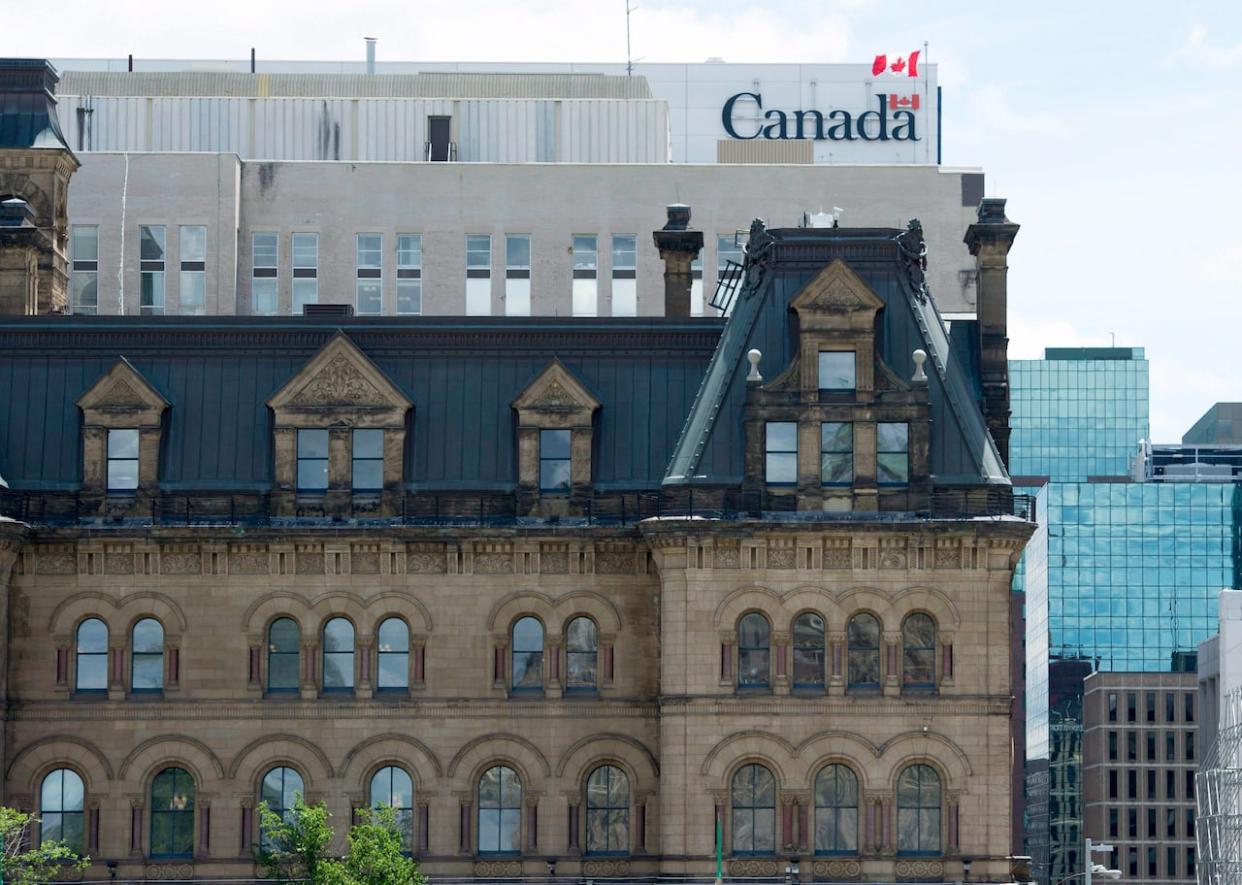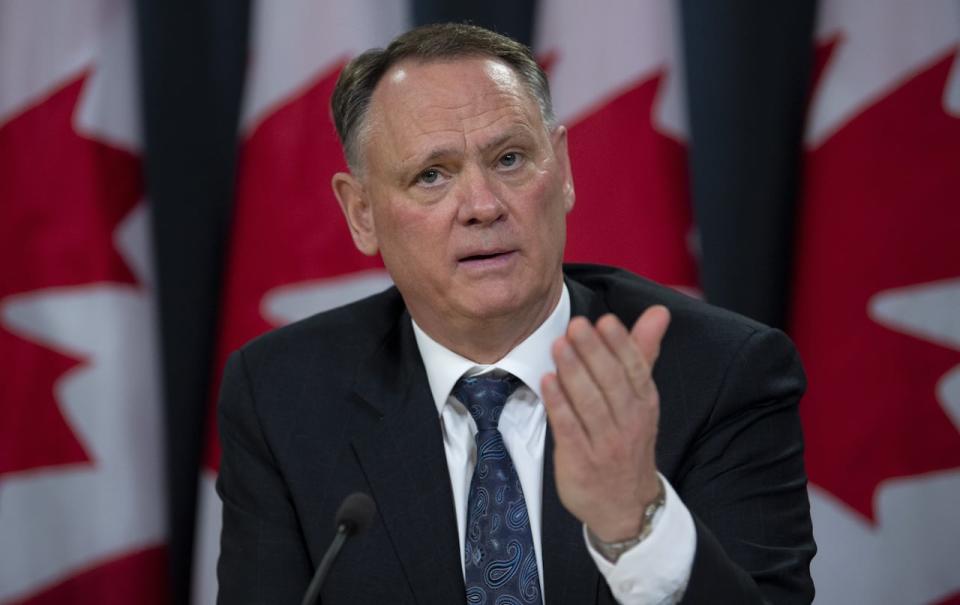Some MPs helping foreign actors like China and India meddle in Canadian politics: report

A shocking new report from one of Canada's intelligence watchdogs suggests some Parliamentarians are "wittingly" helping foreign governments like China and India meddle in Canadian politics.
The National Security and Intelligence Committee of Parliamentarians, which is made up of MPs and senators from across the political spectrum, was asked last year to investigate allegations of foreign interference in Canadian elections.
Their heavily-redacted report, tabled in the House of Commons on Monday, pointed to "particularly concerning" behaviour by some Parliamentarians.
The report said some elected officials "began wittingly assisting foreign state actors soon after their election."
In one case, NSICOP members said they saw intelligence suggesting MPs worked to influence their colleagues on India's behalf and proactively provided confidential information to Indian officials.
In another case cited in the report — based on Canadian Security Intelligence Service (CSIS) information shared with NSICOP — a then-member of Parliament maintained a relationship with a foreign intelligence officer. The officers' country of origin was not included in the public report.
According to CSIS, the MP sought to arrange a meeting in a foreign state with a senior intelligence official and also proactively provided the intelligence officer with information provided in confidence, said the report.
The report said China believes it has a quid pro quo relationship with some MPs who will engage with the Chinese Communist Party in exchange for Beijing mobilizing its vast networks in their favour.
NSICOP reported it also saw intelligence suggesting that unnamed parliamentarians:
Communicated frequently with foreign missions before or during a political campaign to obtain support from community groups or businesses to be mobilized by diplomatic missions;
Accepted knowingly, or through willful blindness, funds or benefits from foreign missions or their proxies which have been layered or otherwise disguised to conceal their source;
Provided foreign diplomatic officials with privileged information on the work or opinions of fellow parliamentarians, knowing that such information would be used by those officials to inappropriately pressure parliamentarians to change their positions;
Responded to the requests or direction of foreign officials to improperly influence parliamentary colleagues or parliamentary business to the advantage of a foreign state
NSICOP said some of the cases of foreign interference they examined might have involved illegal activity but are unlikely to end in criminal charges "owing to Canada's failure to address the long-standing issue of protecting classified information and methods in judicial processes."
"Regardless, all the behaviours are deeply unethical and, the committee would submit, contrary to the oaths and affirmations parliamentarians take to conduct themselves in the best interest of Canada," says the report.
Trudeau government's slow response 'a serious failure'
The report also takes aim at the Liberal government, which the committee says has known since 2018 about the need to take foreign interference more seriously.
"The slow response to a known threat was a serious failure and one from which Canada may feel the consequences for years to come," it said.
"The implications of this inaction include the undermining of the democratic rights and fundamental freedoms of Canadians, the integrity and credibility of Canada's parliamentary process, and public trust in the policy decisions made by the government."
Monday's report marks the third time NSICOP has reviewed the government's response to threats of foreign interference since 2018 and Prime Minister Justin Trudeau's trip to India — a point members make known throughout their latest report.
"Given the risks posed by foreign interference to Canada's national security, the committee expected the government to act. It was slow to do so," says the report.
"In the committee's view, this delay contributed in part to the crisis in which the government found itself in late 2022 and early 2023."
The committee says Canada's security and intelligence community has been held back by outmoded tools and legislation.
"Gaps in these areas limited the ability of security and intelligence organizations to act, particularly with respect to sharing information with law enforcement bodies to enable investigations, lay charges or support prosecutions," says the report.

Chair David McGuinty speaks about the Annual Report of the National Security and Intelligence Committee of Parliamentarians during a news conference in Ottawa, Tuesday April 9, 2019. (Adrian Wyld/Canadian Press)
The report also points out that the Canadian Security Intelligence Service (CSIS) has been unable to share "salient information" with players outside the federal government, such as parliamentarians and other orders of government.
"These gaps contribute to a situation in which there are few meaningful deterrents to foreign states and their Canada-based proxies to conduct interference activities," says the report.
Government disagrees with elements of NSICOP report
Public Safety Minister Dominic LeBlanc said the government will consider NSICOP's findings and recommendations but disagrees with elements of the report.
"The government's concerns centre around the interpretation of intelligence reports, which lacked the necessary caveats inherent to intelligence, as well as the lack of acknowledgement of the full breadth of outreach that has been done with respect to informing parliamentarians about the threat posed by foreign interference," he said Monday afternoon.
The NSICOP report goes on to make six recommendations aimed at the federal government. It calls on Ottawa to update the CSIS Act, to develop consistent definitions and thresholds for action on foreign interference and to start reporting annually on briefings for parliamentarians on foreign interference.
David McGuinty, chair of the committee, said the way political parties conduct nomination races and leadership contests needs to be revisited.
"We're calling on parties to start looking at this much more seriously," he told CBC News.
"We're also calling on the government to now really start a serious dialogue with other all parties to say how can we up our game at our own parties and is it time for Elections Canada to run these nomination processes? To tighten this up? Because a lot is at stake here, it's the confidence Canadians have in their in their democratic processes."
McGuinty said if Elections Canada can run nominations more "transparently, with fair rules, common practice, age, residency identification, all these things that we've surfaced in our case studies, then we have to look at this."
The committee also suggests looking at updating both chambers' conflict of interest acts to capture foreign interference.
Last month, the federal government introduced Bill C-70, which is aimed at curbing foreign interference in Canadian politics. It would introduce new foreign interference offences, change how CSIS applies for warrants, update the rules on whom CSIS can brief and launch a long-awaited foreign influence transparency registry.
"Canada is only now beginning to see the introduction of additional measures to address foreign interference activities," says NSICOP.
The committee was set up in 2017 to provide parliamentary oversight on Ottawa's intelligence operations, including at CSIS, the RCMP, Global Affairs Canada and the Communications Security Establishment (CSE).
MPs and senators on the committee receive security clearances permitting them to see and hear details of the agencies' highly secret activities.
The committee is made up of three Liberal MPs, two Conservatives, one NDP, one Bloc Québécois member and three senators.
Last month, the public inquiry investigating foreign interference found that attempts by other countries to meddle in the 2019 and 2021 general elections did not determine which party formed the government.
"Nonetheless, the acts of interference that occurred are a stain on our electoral process and impacted the process leading up to the actual vote," Justice Marie-Josée Hogue wrote in her initial report.

 Yahoo News
Yahoo News 
